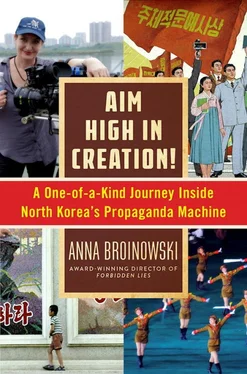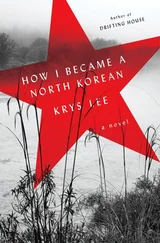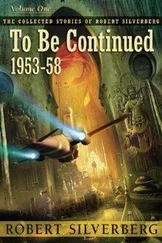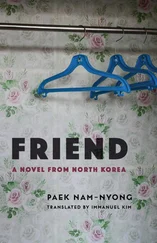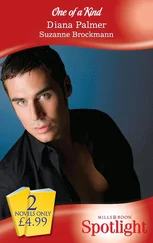The North Koreans stare at her, baffled. Their confusion intensifies when my actors line up and wave, under the closest thing Sydney has to a North Korean propaganda mural, the wall-sized Martin Luther King I Have a Dream painting in Newtown. “Hello, North Korea, we have the Internet!” Matt yells over the traffic, and Pak frowns.
The video segues to Elliott Weston, the gardener’s husband, drinking merlot in his kitchen and imagining working in Pyongyang: “If I was a People’s Artist, and I could write and act in whatever I chose , I’d love to live in North Korea!” he chuckles. Elliott picks up a guitar and strums his Kim Jong Il–inspired song over sumptuous wides of Sydney Park. “ We live and work as one, with all the children laughing, and everybody’s happy always, ” Elliott sings with Juche joy, and the camera zooms in to a black swan in a reed-lined pond: the perfect negative of the white swan on the wall behind the now very confronted North Koreans.
I close the laptop. Pak leans back and exhales. The other nineteen filmmakers look stunned.
“Did you like my cast?” I ask.
Pak ashes his fag, and we wait for him to speak. He takes his time. “We were quite impressed,” he says at last. “People working in the West—actors and filmmakers—are like us. They are not bound by formality; they wear comfortable clothes.” He pauses. “They don’t groom themselves much.” The filmmakers titter.
“I like the actors you’ve chosen,” Ms. Yun intervenes sweetly. “Even though they live far away, I feel close to them, because we do the same job.” Miss N, the athletic young actress Pak has chosen to instruct Kathryn, says she finds my actors very good looking. The other women nod happily, and Miss N continues: “I want Kathryn to know I have heard about extraterrestrials. But I don’t believe in them. As far as life after death goes, in our country, we live eternal life politically. I’m not talking about the eternal life that Buddhism and other doctrines teach. Physical life has a limit: it ends some day. But, here, our people can live without worries, even if they just live for one day. As the saying goes : A tiger leaves his skin behind him . We know that if we devote our life to our Party, the future generations will remember us, and we will live forever. I think your script is also based on such a love, for the home town and the future.”
Edith, a soft-spoken editor with a mannish look that would brand her as gay in the West, looks at me shyly: “I like that the director is female,” she says, and I wonder if she is gay. Edith edited Mr. Ri’s 2010 film Do People Know You , an intimate buddy movie about a Party chairwoman and her ambitious female manager. When the manager cuts the workers’ pay to improve profits, the chairwoman sacks her and forces her to repair shoes in a shed until she learns to serve her people with love. The film ends with the two women embracing passionately on a hill—but with the regime’s view of homosexuality as decadent and immoral, I can’t ask Edith if the Sapphic undertones are intentional. Instead, I stick to my script: does she think that using the Dear Leader’s techniques to film it will work? “What a ridiculous question,” Edith snaps. “Needless to say, our Great Leader Kim Jong Il is a genius in filmmaking, and this is recognised by the world. I think your question is nonsense.”
Edith shuts down in disgust, and Ms. Jang, a ringletted rom-com writer, fills in the silence. “I found your script touching,” she says kindly. “I get positive feelings from it. I like the fact it portrays Karen’s character through a pelican. I have never seen a pelican, but from your footage it looks a noble, righteous, and meaningful creature. Just like this bird, Karen will gather others to fight for her village. I also think the lyrics are well written. They talk about the change of seasons. And in the end, the image of the pelican, associated with motherly love, is linked to patriotism. I am not talking about straightforward patriotism here. I think anyone in the world who knows the meaning of justice and beauty will share the meaning of your film. I hope it is the beginning of a beautiful friendship between our two countries. Thank you for writing it.”
I thank Ms. Jang, grateful to whoever it was at Korfilm who translated my cheesy screenplay into the poetry she appears to have read. Then I remember that cheese is an acceptable part of a North Korean propaganda movie, and allow myself to feel proud. The blunt Mr. Ri knocks me back to earth: “I disagree with Comrade Jang. The actors are okay, but your script is boring. It is a mistake to open with the pelican. It’s so bloody dull! You should cut straight to the action.”
Mr. Pei, the composer, joins the attack: “It was nice to hear Comrade Elliott sing an Australian folk tune,” he says. “But I found the lyrics for the gardener’s song too sentimental and over the top, especially with pelicans flapping around all over the place. So I took the liberty of changing them.” He flushes with embarrassment: “Now I’m worried you won’t like what I have written.”
Over-the-top sentimentality is the one thing that unites every North Korean film song I’ve heard, I think crossly, but I nod brightly at Mr. Pei, reassuring him that I’ll love what he’s done.
Pak, enjoying the frisson between us, picks up my script: “Anna, that badge on your bosom is the message of your screenplay,” he says, pointing at the No Gas triangle pinned to my dress. “I think that Karen is you, and the pelican is your heart.” I nod at Pak, wondering what lethal blow this wily man is softening me up for. “The seed of your film is the same as Sea of Blood ,” he continues. “As defined by our Dear Leader, the seed of that masterpiece is: We must convert a bloody sea of ordeals into a bloody sea of struggle. In other words, you might be able to break one sprig of bush clover, but when you bunch them together, you cannot break them. In the end, the village people achieve victory and safeguard their home town. It is a beautiful story. For the same reason, your script is quite touching. I enjoyed it.”
I smile at Pak, secretly cursing him for setting the bar so high. I’ve already seen the Kim Jong Il Film Museum, where a marble chart lists each of Kim’s 11,870 “on-the-spot guidance” visits to film sets. An entire hall is devoted to one magnificent painting celebrating Kim’s most famous visit, to Sea of Blood . That film is a monumental epic shot on three cameras (thanks to the Dear Leader), with thousands of extras, extraordinary battles, and exquisite lighting. There’s no way I’ll be able to replicate its grandeur and intensity. But it is comforting to know that Pak thinks my script is okay. In fact, I’m surprised how nice he’s being about it.
Nic and I take the filmmakers outside and ask them to stand under the stunning mural of Kotpun from Flower Girl . The shot is designed to match the one of my Australian actors in Newtown, waving under the mural of Martin Luther King. The filmmakers obligingly line up in the grass, their heads nudging Kotpun’s enormous sandals. “Hello, people in Australia,” Pak calls to our camera, leading the filmmakers in a group wave. As Nic pans back and forth, he keeps up a running commentary, making everyone giggle. Sun Hi, for some reason, won’t translate. It’s only weeks later, when I hand the rushes to an intepreter back in Sydney, that I realise Pak has had the last laugh.
“Hello, Australia! Don’t come and start another war again!” Pak is saying as he waves. “If you come back and invade us like you did in the ’50s, there will be a big problem.”
“We won’t forgive you,” Mr. Ri chimes in, waving enthusiastically.
Читать дальше
